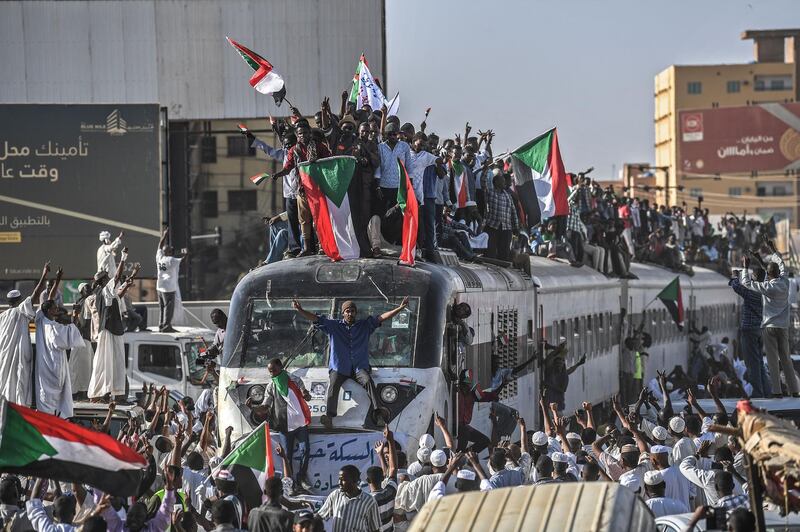When long-standing Gambian president Yahua Jammeh lost an election in December 2016, he annulled the result and deployed troops in the capital Banjul, ignoring warnings from the African Union and regional body Ecowas. In response, a coalition of Senegalese, Nigerian and Ghanaian forces entered The Gambia. Within 48 hours, and after 21 years in power, Mr Jammeh stepped down. It was an African solution to an African problem – one that has made for a more secure Gambia ever since. Addressing a special summit of African leaders in Cairo on Tuesday, Egyptian President Abdel Fattah El Sisi urged his counterparts to find fitting solutions for the crises facing the continent today. With Mr El Sisi occupying the union's rotating chair, the bloc looks strong. And with worsening violence in Libya and tensions reaching boiling point in Sudan, following the ousting of former president Omar Al Bashir, its mandate has rarely seemed so vital. The bloc must now step up to tackle Africa's major challenges.
Talks in Cairo focused on Sudan and Libya. In Khartoum, relations have been worsening between the military council overseeing Sudan's transition and thousands of protesters, who first took to the streets in December and whose numbers continue to swell. As African leaders met, thousands arrived in Khartoum by train to join a sit-in demanding a transition to civilian rule. Mr El Sisi expressed his determination not to see Sudan "slide into chaos" and reiterated the need for a "democratic and political process". Having demanded the military council hand over power to a civilian administration within 15 days or face suspension from the AU, the bloc on Tuesday extended the period to three months. This is not about choosing sides but ensuring a non-violent transition. Egypt is determined to prevent chaos in its southern neighbour and while the AU is right to demand change, it must put stability first.
The union also faces a critical moment in Libya, where the bloc has demanded an "immediate and unconditional" ceasefire. With Field Marshal Khalifa Haftar's Libyan National Army marching on Tripoli, the seat of a UN-backed administration protected by militias, the possibility of mass bloodshed is growing. Mr El Sisi's call for restraint must be heeded, for Egypt knows only too well the threat posed by extremists amid a climate of chaos. It is worth bearing in mind that an AU delegation was endeavouring to persuade Libyan leader Muammar Qaddafi to step down in 2011 but was prematurely thwarted by western airstrikes before he was captured and killed.
Libya and Sudan hold immense geopolitical significance. Both sit at the crossroads between Africa and the Arab world; Libya is also a channel for migrants and refugees heading to Europe. And yet both are nations in turmoil, with major implications for the region – and their neighbour Egypt in particular. Libya is still afflicted with the scars of flawed western intervention. This is a time for African leaders, under the helmsmanship of Mr El Sisi, to unite in ensuring stability returns to both countries.





